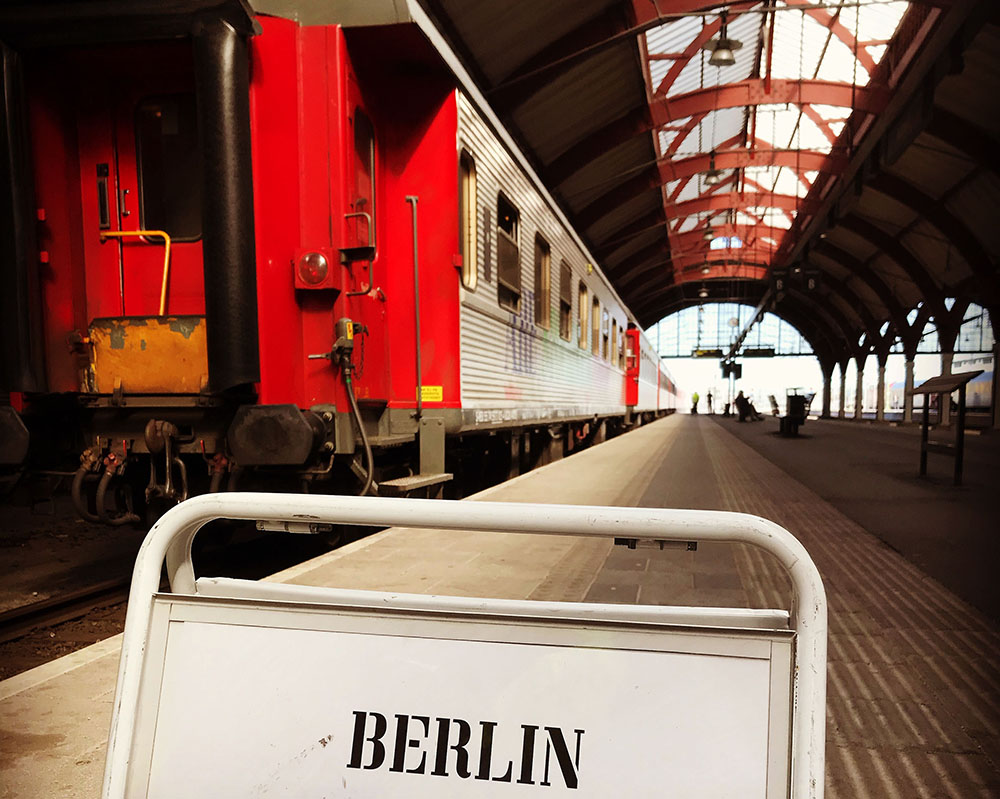
PRESS RELEASE SNÄLLTÅGET 16.06.2020
Increased cross-border night train services between Sweden and Germany in 2021 – but summer 2020 is cancelled
Snälltåget plans to increase the cross-border night train services between Sweden and Germany in 2021, with direct departures Stockholm–Malmö–Copenhagen–Hamburg–Berlin. However, during the summer of 2020 traffic will be suspended due to the unclear regulations for travellers as a result of the pandemic.
– Uncertainty about the future of the train ferry route Trelleborg–Sassnitz, quarantine rules in Germany and pending rules of when it’s allowed to travel abroad from Sweden has caused many cancellations and due to that, we are forced to cancel the cross border night train services for the summer 2020. But we have a plan for increasing the number of departures in 2021, when the pandemic hopefully is over, says Marco Anderson, Head of Sales and Marketing at Snälltåget
Snälltåget is planning for a completely new route for the cross-border night train services. It will depart from Stockholm and stop in Södertälje, Norrköping, Linköping, Nässjö, Alvesta, Hässleholm, Eslöv, Lund, Malmö, Höje Taastrup (the Copenhagen area) and will arrive in the morning at Hamburg Hbf and then continue to Berlin Hbf.
– We believe that the travel market will look completely different after the pandemic. The demand for environmentally friendly trains between Sweden and Germany will increase and we are therefore planning for more departures and a completely new route for the cross-border night train, says Marco Andersson.
The train will depart from Stockholm 16.20, Malmö 21.55, Höje Taastrup (in the Copenhagen area) 22.45, arriving in Hamburg 05.50 and finally Berlin 08.25. On the way from Germany, the train will depart from Berlin at 21.00, Hamburg at 23.30 and arrive at Höje Taastrup 06.50, Malmö 07.40 and Stockholm 14.25. The train will depart daily during the summer months of June, July and August and as a weekend service in April, May and September. In total, the traffic will almost quadruple the number of departures compared to the traffic in 2019. With the new route, Stockholm and Copenhagen will receive direct trains to Berlin and Hamburg.
The cross-border night train service from Snälltåget is based on ticket revenues and is not subsidised by the government. Snälltåget has a critical attitude to the Swedish Government's plans of a subsidised night train service and believes that it distorts competition and creates new monopolies in the rail market – in contrast to the political objectives for the railways in the EU.
– We believe that the Swedish Government should make it easier for all railway companies to operate international trains and not subsidise an unprofitable night train service Malmö–Cologne as proposed by the Swedish Transport Administration. We believe that the Government should instead focus on making it easier for everyone who wants to operate international trains, says Carl Adam Holmberg, Business Manager for Snälltåget.
The route Stockholm–Malmö–Copenhagen–Hamburg–Berlin will be operated with the international carriages that Snälltåget invested in last year, but coaches will also be available. In all three countries, the locos will use renewable electricity in order to minimize the environmental impact.
About Snälltåget
Snälltåget are driven by giving our travellers a pleasant and affordable trip! Snälltåget operates between Malmö and Stockholm all year round. During the late summer and winter, Snälltåget takes you all the way from Malmö via Stockholm to the mountain area of Jämtland and during the summer season you can go with us to Berlin every day. To Blekinge, Jönköping and Växjö we offer connecting bus services.
Snälltåget acts like a small-scale business but has a stable and long-term owner as a part of the Transdev Group. Transdev SA is owned 34% by a German family business, Rethmann-Gruppe and 66% by Caisse des Dépôts et Consignations (CDC). CDC is a French investment fund whose mission is to act with public interest in focus and to limit the territorial divisions by helping the French municipalities and regions to develop.